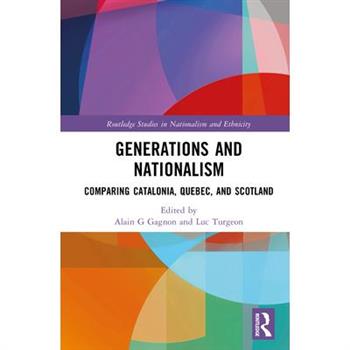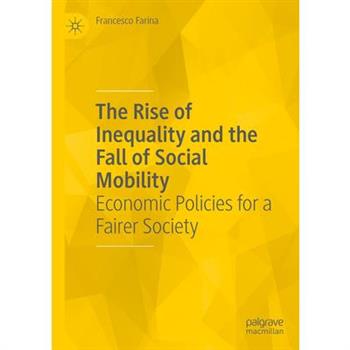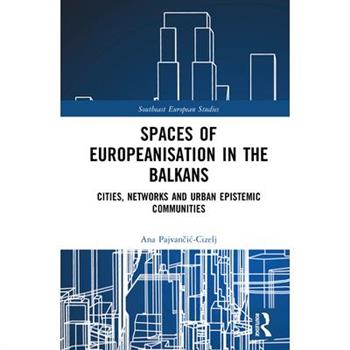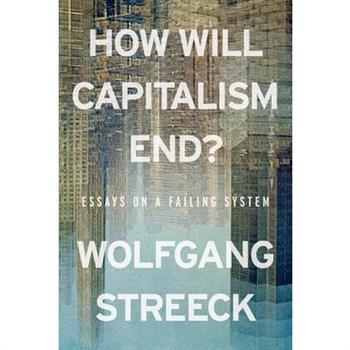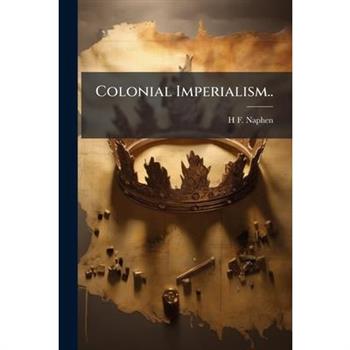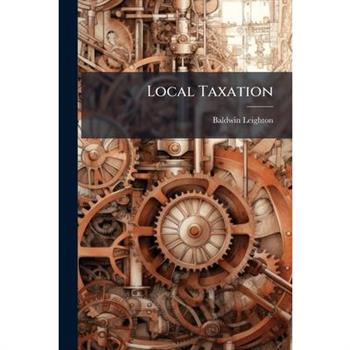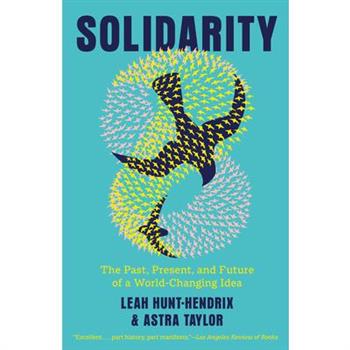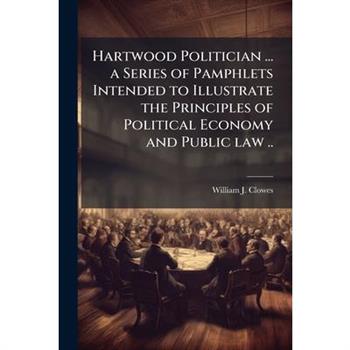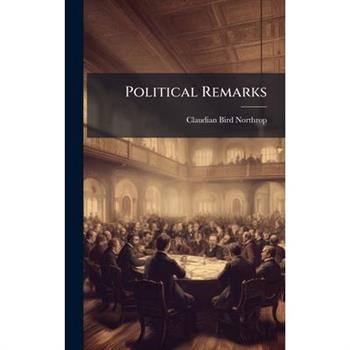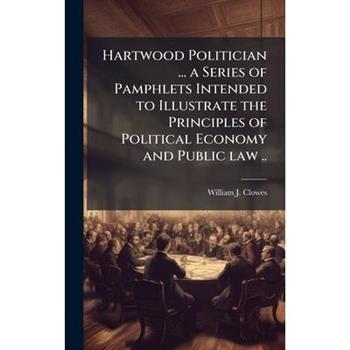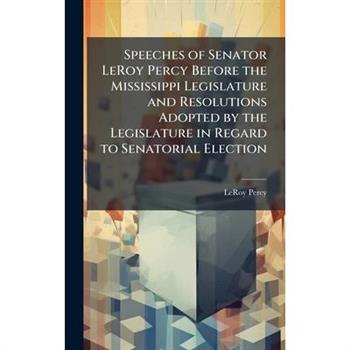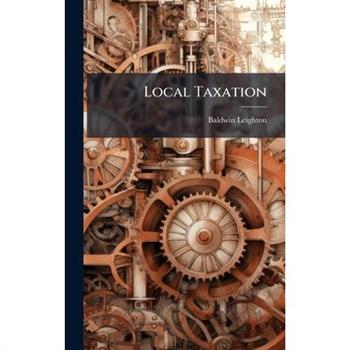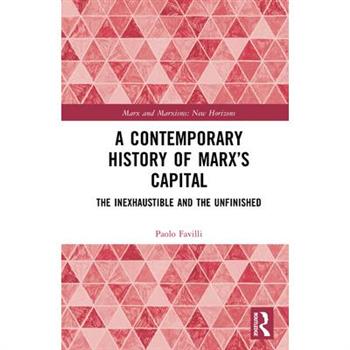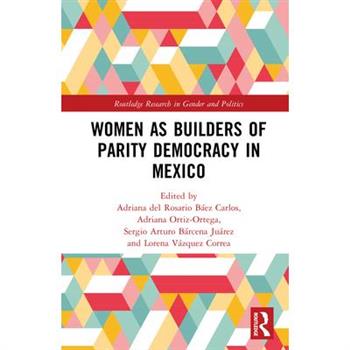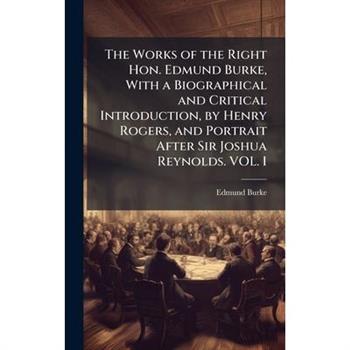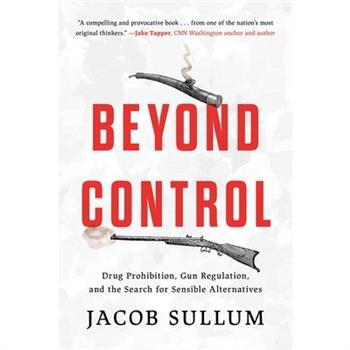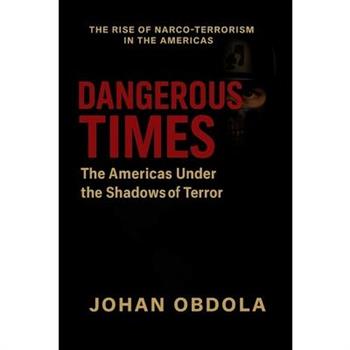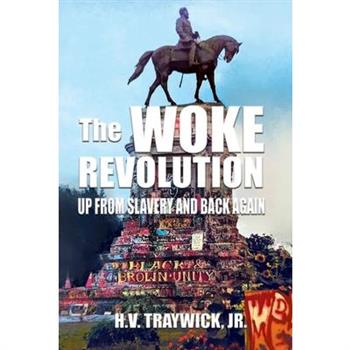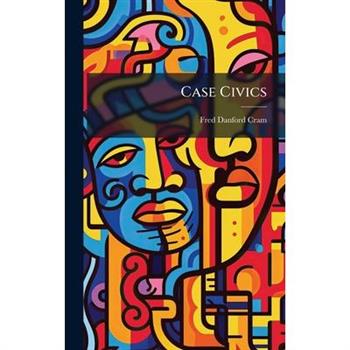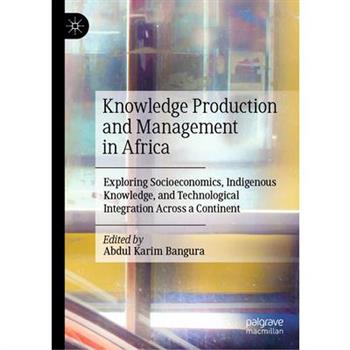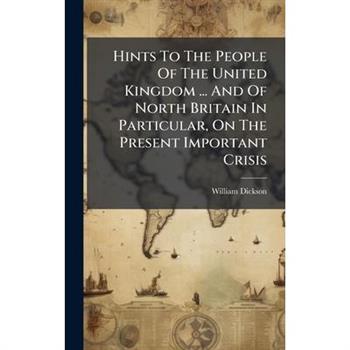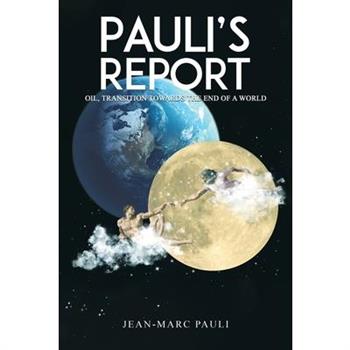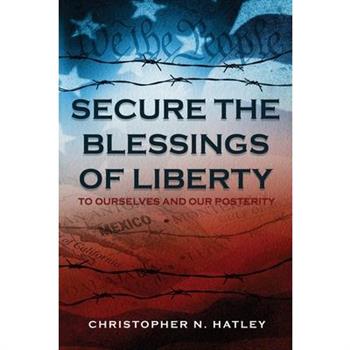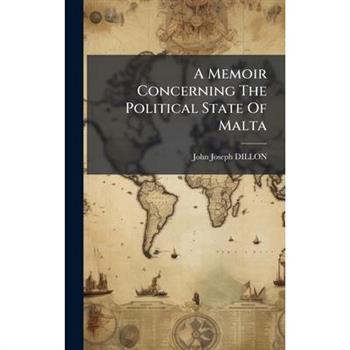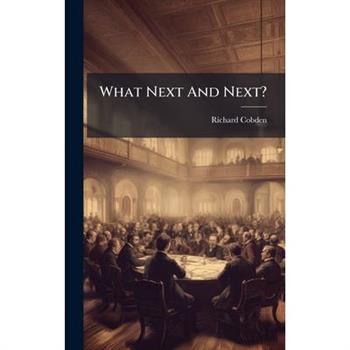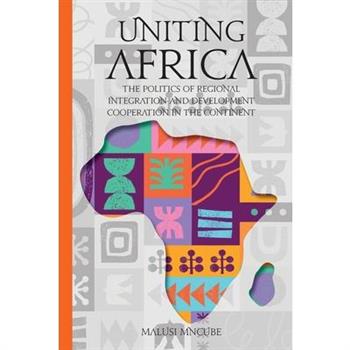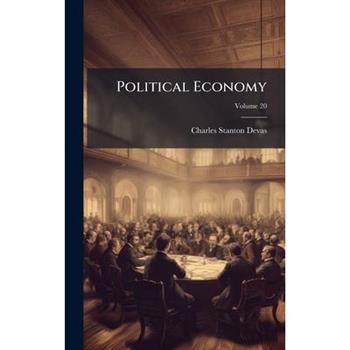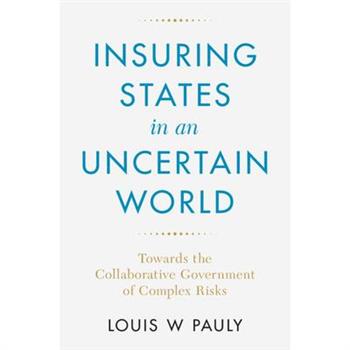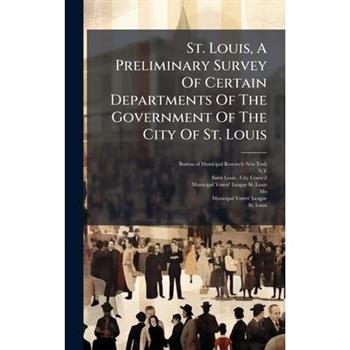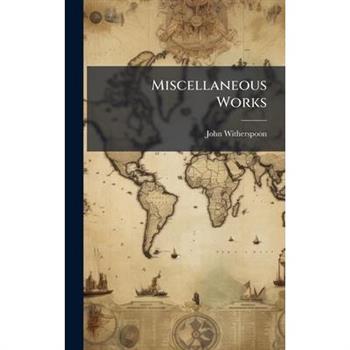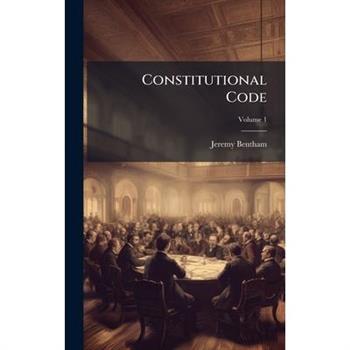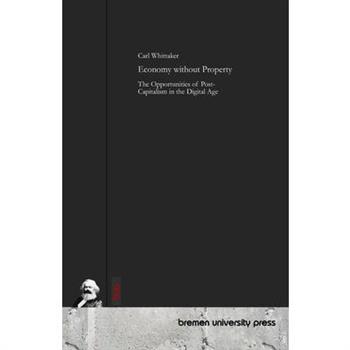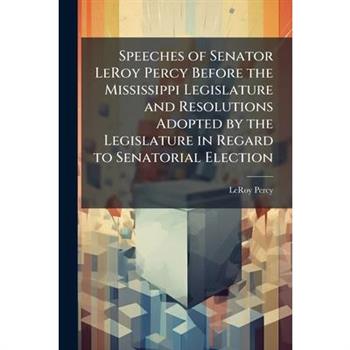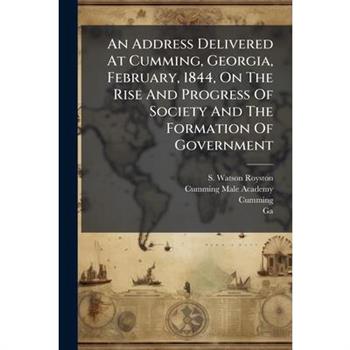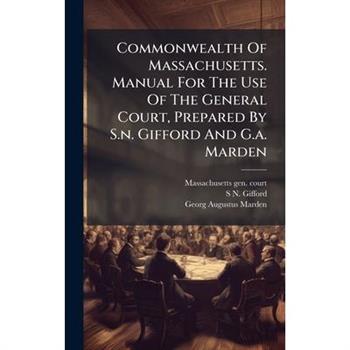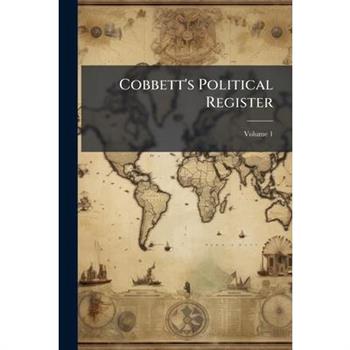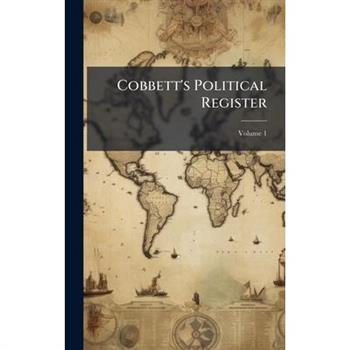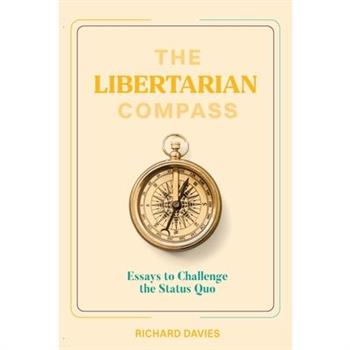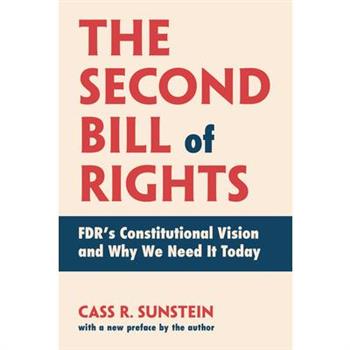Generations and Nationalism
Generations and Nationalism breaks new ground by placing the impact of generation and generational changes at the forefront of an investigation on the transformation of nationalist movements and the evolution of support for independence in Catalonia, Quebec and Scotland.
The Militarisation of British Democracy
This book argues that the pursuit of war and the further militarisation of British democracy since 9/11 has led the UK into a permanent state of war and made the nation particularly prone to military aggression rather than managing conflict through negotiation. Within NATO, Britain is among the most belligerent nations ratcheting up military expenditure and the use of violence to manage conflict. The militarisation of British (and Western) states and authoritarian values have been manufactured to provide domestic support for permanent war. Failure in Iraq, Afghanistan, Libya, Syria, Ukraine and the Middle East has not reduced confidence in the use of military aggression as NATO seeks confrontation in a 'New Cold War' between 'democracy' and 'authoritarian' Russia and China. Paradoxically, Britain and the West's militarisation proposes to destroy democracy in order to save it, and to provide authoritarian states with the excuse to become more authoritarian.
Contemporary Islamist Opposition in Morocco
This book offers an in-depth and yet-unexplored analysis of the evolution and actions of Moroccan Islamist association Justice and Spirituality (al-Adl wa-l-Ihsane). By examining its mobilisation structure, the book enhances the understanding of Islamism as an oppositional force in non-democratic regimes, with a particular focus on Morocco. Contrary to the common premises of inclusion-moderation theory, al-Adl wa-l-Ihsane has undergone a politicisation process but rejects political inclusion; it promotes street mobilisation but refuses to resort to violence. Despite its illegal status and disregard for the regime's red lines, al-Adl wa-l-Ihsane remains highly relevant as an anti-establishment actor. This book fills a significant gap in knowledge about al-Adl wa-l-Ihsane. It further broadens the understanding of inclusion-moderation theory by introducing novel explanatory factors for al-Adl wa-l-Ihsane's evolution and strategies, such as responses to shifts in opportunity structures and the impact of internal dynamics and learning mechanisms.
European Union Enlargement and Democratisation
Enlargement is often considered to be the strongest foreign policy tool available to the European Union, and is instrumental in the EU's efforts to spread its liberal democratic norms in the post-communist countries of Central and Eastern Europe. However, the experience of recent years has painted a more uneven picture. While the EU's norms have proven to be reasonably robust in countries such as Czechia, in others, most notably Hungary, they have proven to be far more fragile. What accounts for this post-accession variation in adherence to liberal democratic norms between the post-communist Central and Eastern European Countries? And what implications does this have for the use of enlargement policy as a means for spreading democracy? This book explains the processes and mechanisms which determine how the liberal democratic norms of the European Union can be transferred to another country; and why enlargement has had such mixed results to date.
The Rise of Inequality and the Fall of Social Mobility
This book examines the disappearance of upward mobility and the rise of inequality within Western societies. It explores intergenerational social mobility and charts its evolution over recent decades. Particular attention is given to the economic changes that have impacted social mobility trends since the introduction of neoliberal doctrine by the Reagan and Thatcher governments. The promises of meritocracy and increased opportunity through education are shown to be false during a time when trickle-down economics - namely, deregulation and austerity in public policies - is driving a rise in inequality, with the benefits of economic growth being collected by the wealthy elite. By highlighting the negative impacts of these economic trends, including the increase in poorly paid and insecure jobs, a new set of public policies are presented that better utilise the skills present within the labour market to create economic equity.This book challenges the neoliberal consensus and sets out economic reforms for a fair society. It will be relevant to students and researchers interested in the political economy, economic systems, and labor economics.The English translation of this book, originally in Italian, was done with the help of artificial intelligence. The content was later revised by the author for accuracy.
Spaces of Europeanisation in the Balkans
This book tackles the spatial dimension of Europeanization in the Balkans by focusing on cities, inter-urban networks, and urban epistemic communities.Exploring the participation of urban actors from the Balkans in 18 European inter-urban networks, it employs a new mixed-method framework to show how such participation continuously reshapes Balkan Cities' urban trajectories with contradictory and variegated consequences. Against the backdrop of the existing state and conflict-centred literature on (failures) of European integration in the region, the author offers a fresh perspective on Europeanization as it unfolds through direct inter-city cooperation.This volume will be of interest to both scholars of urban studies and Southeast European Studies, as well as anyone interested in the Europeanization of the Balkans and its cities.
How Will Capitalism End?
One of the "Best Books of the Year" Guardian - Financial Times - Times Higher Education A major collection of essays that questions whether contemporary capitalism will end with a bang or a whimper--from a leading political economist and the author of Buying Time. After years of ill health, capitalism is now in a critical condition. Growth has given way to stagnation; inequality is leading to instability; and confidence in the money economy has all but evaporated. In How Will Capitalism End?, the acclaimed analyst of contemporary politics and economics Wolfgang Streeck argues that the world is about to change. The marriage between democracy and capitalism, ill-suited partners brought together in the shadow of World War II, is coming to an end. The regulatory institutions that once restrained the financial sector's excesses have collapsed and, after the final victory of capitalism at the end of the Cold War, there is no political agency capable of rolling back the liberalization of the markets. Ours has become a world defined by declining growth, oligarchic rule, a shrinking public sphere, institutional corruption and international anarchy, and no cure to these ills is at hand.
Colonial Imperialism..
An in-depth examination of the dynamics of colonial imperialism around the turn of the 20th century. This historical analysis provides insights into the political and economic forces driving the expansion of empires and their impact on global affairs. A valuable resource for students and researchers interested in the history of colonialism and imperialism.This work has been selected by scholars as being culturally important, and is part of the knowledge base of civilization as we know it. This work was reproduced from the original artifact, and remains as true to the original work as possible. Therefore, you will see the original copyright references, library stamps (as most of these works have been housed in our most important libraries around the world), and other notations in the work.This work is in the public domain in the United States of America, and possibly other nations. Within the United States, you may freely copy and distribute this work, as no entity (individual or corporate) has a copyright on the body of the work.As a reproduction of a historical artifact, this work may contain missing or blurred pages, poor pictures, errant marks, etc. Scholars believe, and we concur, that this work is important enough to be preserved, reproduced, and made generally available to the public. We appreciate your support of the preservation process, and thank you for being an important part of keeping this knowledge alive and relevant.
A Letter To The Right Honourable Henry Lord Viscount Cornbury
"A Letter To The Right Honourable Henry Lord Viscount Cornbury" presents a fascinating glimpse into the political and academic climate of 18th-century England. Written by "Some Oxford Electors," this document directly addresses a letter from Lord Cornbury to the Vice-Chancellor of Oxford in Convocation. The book includes Lord Cornbury's original letter, providing crucial context for understanding the electors' response.This historical document sheds light on the concerns and opinions of Oxford electors during a pivotal period. It offers insights into the relationship between political figures and academic institutions, as well as the issues that animated political discourse at the time. Readers interested in British history, political theory, and the history of Oxford University will find this a valuable resource.This work has been selected by scholars as being culturally important, and is part of the knowledge base of civilization as we know it. This work was reproduced from the original artifact, and remains as true to the original work as possible. Therefore, you will see the original copyright references, library stamps (as most of these works have been housed in our most important libraries around the world), and other notations in the work.This work is in the public domain in the United States of America, and possibly other nations. Within the United States, you may freely copy and distribute this work, as no entity (individual or corporate) has a copyright on the body of the work.As a reproduction of a historical artifact, this work may contain missing or blurred pages, poor pictures, errant marks, etc. Scholars believe, and we concur, that this work is important enough to be preserved, reproduced, and made generally available to the public. We appreciate your support of the preservation process, and thank you for being an important part of keeping this knowledge alive and relevant.
Local Taxation
This is a reproduction of the speech "Local Taxation" delivered by Sir Baldwin Leighton, Bart., M.P., in the House of Commons on March 28th, 1884. Leighton seconded the resolution of Mr. Albert Bell during this parliamentary session. This pamphlet offers a glimpse into the debates and concerns surrounding local taxation in late 19th-century Britain. It provides valuable insights into the political and economic issues of the time, as discussed within the British government. As part of the Talbot Collection of British Pamphlets, this historical document is a significant resource for researchers and anyone interested in understanding the evolution of British fiscal policy and parliamentary discourse.This work has been selected by scholars as being culturally important, and is part of the knowledge base of civilization as we know it. This work was reproduced from the original artifact, and remains as true to the original work as possible. Therefore, you will see the original copyright references, library stamps (as most of these works have been housed in our most important libraries around the world), and other notations in the work.This work is in the public domain in the United States of America, and possibly other nations. Within the United States, you may freely copy and distribute this work, as no entity (individual or corporate) has a copyright on the body of the work.As a reproduction of a historical artifact, this work may contain missing or blurred pages, poor pictures, errant marks, etc. Scholars believe, and we concur, that this work is important enough to be preserved, reproduced, and made generally available to the public. We appreciate your support of the preservation process, and thank you for being an important part of keeping this knowledge alive and relevant.
Solidarity
A VULTURE BEST BOOK - From renowned organizers and activists Leah Hunt-Hendrix and Astra Taylor, comes the first in-depth examination of Solidarity--not just as a rallying cry, but as potent political movement with potential to effect lasting change. A DAYTON LITERARY PEACE PRIZE FINALIST "A window into what is possible when we reject the politics of division, trade individualism for interconnectedness and prioritize coming together for the greater good."--Heather McGhee, author of The Sum of Us: What Racism Costs Everyone "Reads at once like a moral treatise and a rallying manifesto, a call to reflect and lock arms."--The Washington Post Solidarity is often invoked, but it is rarely analyzed and poorly understood. Here, two leading activists and thinkers survey the past, present, and future of the concept across borders of nation, identity, and class to ask: how can we build solidarity in an era of staggering inequality, polarization, violence, and ecological catastrophe? Offering a lively and lucid history of the idea--from Ancient Rome through the first European and American socialists and labor organizers, to twenty-first century social movements like Occupy Wall Street and Black Lives Matter--Hunt-Hendrix and Taylor trace the philosophical debates and political struggles that have shaped the modern world. Looking forward, they argue that a clear understanding of how solidarity is built and sustained, and an awareness of how it has been suppressed, is essential to warding off the many crises of our present: right-wing backlash, irreversible climate damage, widespread alienation, loneliness, and despair. Hunt-Hendrix and Taylor insist that solidarity is both a principle and a practice, one that must be cultivated and institutionalized, so that care for the common good becomes the central aim of politics and social life.
Hartwood Politician ... a Series of Pamphlets Intended to Illustrate the Principles of Political Economy and Public law ..
"Hartwood Politician" is a series of pamphlets written by William J. Clowes in 1853, intended to illustrate the principles of political economy and public law. This collection offers a glimpse into the political thought of the mid-19th century, providing insight into the economic and legal issues that shaped the era. Clowes' work serves as a valuable resource for understanding the historical context of political and economic theories and their application in public law. Scholars and students interested in the history of political science, economic policy, and legal frameworks will find this a compelling and insightful resource.This work has been selected by scholars as being culturally important, and is part of the knowledge base of civilization as we know it. This work was reproduced from the original artifact, and remains as true to the original work as possible. Therefore, you will see the original copyright references, library stamps (as most of these works have been housed in our most important libraries around the world), and other notations in the work.This work is in the public domain in the United States of America, and possibly other nations. Within the United States, you may freely copy and distribute this work, as no entity (individual or corporate) has a copyright on the body of the work.As a reproduction of a historical artifact, this work may contain missing or blurred pages, poor pictures, errant marks, etc. Scholars believe, and we concur, that this work is important enough to be preserved, reproduced, and made generally available to the public. We appreciate your support of the preservation process, and thank you for being an important part of keeping this knowledge alive and relevant.
Political Remarks
"Political Remarks" by Claudian Bird Northrop offers a compelling glimpse into the political discourse of 19th-century America. This collection of essays and speeches provides a window into the pressing issues and fervent debates that shaped the nation during a transformative period. Northrop's work captures the spirit and tenor of the times, offering insights into the political landscape through the eyes of a contemporary observer. Readers interested in American history, political science, and the art of rhetoric will find this volume to be a valuable resource. "Political Remarks" is not merely a historical artifact but a testament to the enduring power of political thought and its ability to inspire and influence generations.This work has been selected by scholars as being culturally important, and is part of the knowledge base of civilization as we know it. This work was reproduced from the original artifact, and remains as true to the original work as possible. Therefore, you will see the original copyright references, library stamps (as most of these works have been housed in our most important libraries around the world), and other notations in the work.This work is in the public domain in the United States of America, and possibly other nations. Within the United States, you may freely copy and distribute this work, as no entity (individual or corporate) has a copyright on the body of the work.As a reproduction of a historical artifact, this work may contain missing or blurred pages, poor pictures, errant marks, etc. Scholars believe, and we concur, that this work is important enough to be preserved, reproduced, and made generally available to the public. We appreciate your support of the preservation process, and thank you for being an important part of keeping this knowledge alive and relevant.
Hartwood Politician ... a Series of Pamphlets Intended to Illustrate the Principles of Political Economy and Public law ..
"Hartwood Politician" is a series of pamphlets written by William J. Clowes in 1853, intended to illustrate the principles of political economy and public law. This collection offers a glimpse into the political thought of the mid-19th century, providing insight into the economic and legal issues that shaped the era. Clowes' work serves as a valuable resource for understanding the historical context of political and economic theories and their application in public law. Scholars and students interested in the history of political science, economic policy, and legal frameworks will find this a compelling and insightful resource.This work has been selected by scholars as being culturally important, and is part of the knowledge base of civilization as we know it. This work was reproduced from the original artifact, and remains as true to the original work as possible. Therefore, you will see the original copyright references, library stamps (as most of these works have been housed in our most important libraries around the world), and other notations in the work.This work is in the public domain in the United States of America, and possibly other nations. Within the United States, you may freely copy and distribute this work, as no entity (individual or corporate) has a copyright on the body of the work.As a reproduction of a historical artifact, this work may contain missing or blurred pages, poor pictures, errant marks, etc. Scholars believe, and we concur, that this work is important enough to be preserved, reproduced, and made generally available to the public. We appreciate your support of the preservation process, and thank you for being an important part of keeping this knowledge alive and relevant.
Speeches of Senator LeRoy Percy Before the Mississippi Legislature and Resolutions Adopted by the Legislature in Regard to Senatorial Election
This volume contains the speeches of Senator LeRoy Percy delivered before the Mississippi Legislature, along with the resolutions adopted by the legislature regarding the senatorial election. Providing insight into the political climate of early 20th-century Mississippi, the speeches address key issues and debates surrounding the election process. Senator Percy's addresses offer a firsthand account of the challenges and considerations facing legislators and the broader electorate during this period. This collection serves as a valuable resource for understanding the historical context of senatorial elections and the political dynamics of the time. It provides researchers and enthusiasts with a detailed glimpse into the legislative proceedings and the perspectives of a prominent political figure.This work has been selected by scholars as being culturally important, and is part of the knowledge base of civilization as we know it. This work was reproduced from the original artifact, and remains as true to the original work as possible. Therefore, you will see the original copyright references, library stamps (as most of these works have been housed in our most important libraries around the world), and other notations in the work.This work is in the public domain in the United States of America, and possibly other nations. Within the United States, you may freely copy and distribute this work, as no entity (individual or corporate) has a copyright on the body of the work.As a reproduction of a historical artifact, this work may contain missing or blurred pages, poor pictures, errant marks, etc. Scholars believe, and we concur, that this work is important enough to be preserved, reproduced, and made generally available to the public. We appreciate your support of the preservation process, and thank you for being an important part of keeping this knowledge alive and relevant.
Local Taxation
This is a reproduction of the speech "Local Taxation" delivered by Sir Baldwin Leighton, Bart., M.P., in the House of Commons on March 28th, 1884. Leighton seconded the resolution of Mr. Albert Bell during this parliamentary session. This pamphlet offers a glimpse into the debates and concerns surrounding local taxation in late 19th-century Britain. It provides valuable insights into the political and economic issues of the time, as discussed within the British government. As part of the Talbot Collection of British Pamphlets, this historical document is a significant resource for researchers and anyone interested in understanding the evolution of British fiscal policy and parliamentary discourse.This work has been selected by scholars as being culturally important, and is part of the knowledge base of civilization as we know it. This work was reproduced from the original artifact, and remains as true to the original work as possible. Therefore, you will see the original copyright references, library stamps (as most of these works have been housed in our most important libraries around the world), and other notations in the work.This work is in the public domain in the United States of America, and possibly other nations. Within the United States, you may freely copy and distribute this work, as no entity (individual or corporate) has a copyright on the body of the work.As a reproduction of a historical artifact, this work may contain missing or blurred pages, poor pictures, errant marks, etc. Scholars believe, and we concur, that this work is important enough to be preserved, reproduced, and made generally available to the public. We appreciate your support of the preservation process, and thank you for being an important part of keeping this knowledge alive and relevant.
A Contemporary History of Marx's Capital
Paolo Favilli provides both students and scholars with an original reading of themes and issues found in Karl Marx's Das Kapital and its connections with present- day challenges. By way of continuous cross- referencing between present and past, Favilli demonstrates that claims regarding the scientific status of Das Kapital, advanced by countless texts since its original publication, are themselves deeply imbued by the 'spirit of the times'. If in 1963 Jean-Paul Sartre could write that Marxism was the unsurpassable philosophical horizon of our times, what could make an undergraduate student today consider such a claim plausible?Informed by the latest research on Marxist theory and decades of teaching the Philosophy of History, Favilli employs a didactic approach stimulating student engagement and learning opportunities in the classroom. This approach allows for a better understanding of relationship between the present and the multiple temporalities that characterise and periodise the contemporary era. What follows is a critique of the contemporary academy for its hangover of post-1989 nuovismo (cult of novelty) and inability to make the proper distinctions between Marxism-as-party-state, the works of Karl Marx, and Marxism as an object of history. This led to the spectacle where after 1989, those who had spent most of their careers as Marxist-hued scholars not only abandoned this identity but also spurned any recognition that Marx and Marxism were worthwhile objects of enquiry.This book was first published in Italian as A proposito de 'Il capitale'..., Il lungo presente e i miei studenti. Corso di storia contemporanea (Milan: FrancoAngeli, 2021). This English translation includes a new foreword by the author.
Women as Builders of Parity Democracy in Mexico
Claudia Sheinbaum's inauguration as Mexico's 66th president saw political analysts focusing on the impact her presidency would have on the advancement of social transformation and gender equality. This book chronicles women's integration into Mexico's public sphere during the nation's democratic transition.
The Works of the Right Hon. Edmund Burke, With a Biographical and Critical Introduction, by Henry Rogers, and Portrait After Sir Joshua Reynolds. VOL. I
Title: The Works of the Right Hon. Edmund Burke, with a biographical and critical introduction, by Henry Rogers, and portrait after Sir Joshua Reynolds.Publisher: British Library, Historical Print EditionsThe British Library is the national library of the United Kingdom. It is one of the world's largest research libraries holding over 150 million items in all known languages and formats: books, journals, newspapers, sound recordings, patents, maps, stamps, prints and much more. Its collections include around 14 million books, along with substantial additional collections of manuscripts and historical items dating back as far as 300 BC.The FICTION & PROSE LITERATURE collection includes books from the British Library digitised by Microsoft. The collection provides readers with a perspective of the world from some of the 18th and 19th century's most talented writers. Written for a range of audiences, these works are a treasure for any curious reader looking to see the world through the eyes of ages past. Beyond the main body of works the collection also includes song-books, comedy, and works of satire. ++++The below data was compiled from various identification fields in the bibliographic record of this title. This data is provided as an additional tool in helping to insure edition identification: ++++ British Library Burke, Edmund; 1837. 2 vol.; 8?簞. 12269.h.8.This work has been selected by scholars as being culturally important, and is part of the knowledge base of civilization as we know it. This work was reproduced from the original artifact, and remains as true to the original work as possible. Therefore, you will see the original copyright references, library stamps (as most of these works have been housed in our most important libraries around the world), and other notations in the work.This work is in the public domain in the United States of America, and possibly other nations. Within the United States, you may freely copy and distribute this work, as no entity (individual or corporate) has a copyright on the body of the work.As a reproduction of a historical artifact, this work may contain missing or blurred pages, poor pictures, errant marks, etc. Scholars believe, and we concur, that this work is important enough to be preserved, reproduced, and made generally available to the public. We appreciate your support of the preservation process, and thank you for being an important part of keeping this knowledge alive and relevant.
Beyond Control
In this incisive book, Reason editor Jacob Sullum untangles America's twin crusades against guns and drugs, suggesting better-tailored alternatives that do more good while causing less harm. Does gun control work? What about drug prohibition? In this cogent examination of two of America's most enduring challenges, Reason Senior Editor Jacob Sullum traces the evolution of gun and drug laws from their dubious beginnings to today's divisive rhetoric. Based on data-driven analysis and compassionate consideration of the human costs imposed by the twin crusades against guns and drugs, Sullum recommends an alternative approach that focuses on reducing harm, including the harm caused by misguided policies. Sullum exposes the racist roots of gun control and drug control, noting that both policies continue to have a racially disproportionate impact. Even leaving aside the legacy of that dark history, he argues, both policies are unjust because they punish people for conduct that violates no one's rights. They are also dangerous to civil liberties because they encourage the expansion of government power at the expense of individual freedom. The burdens imposed by gun control and drug control reinforce each other, since gun possession increases penalties for drug offenses and drug offenses disqualify people from legally possessing guns. Yet there is little logic to these legal regimes, which penalize people for behavior that is not inherently criminal. Decades of research have produced scant evidence that popular gun control prescriptions such as assault weapon bans, universal background checks, restrictions on ownership, and red flag laws work as advertised. Research on the impact of the war on drugs likewise provides little reason to believe that its doubtful benefits outweigh its myriad costs. In both cases, the burdens often fall on peaceful individuals who pose no threat to public safety, and the policies seem ill-designed to reduce the problems they aim to address. Sullum notes that critics of gun control and critics of the war on drugs make similar points, complaining that these policies are unfair, invasive, poorly targeted, and ineffective. But because these two sets of critics tend to come from opposing political camps, they usually overlook their common ground. Beyond Control surveys that territory, showing that conservatives and progressive share concerns about overcriminalization, overzealous law enforcement, draconian penalties, and the erosion of civil liberties. Substance abuse, violence, and suicide are complex problems that cannot be solved by targeting inanimate objects or by arresting and incarcerating people who possess them. Beyond Control urges better-tailored alternatives that would do more good while causing less harm.
Dangerous Times
Dangerous Times: The Americas Under the Shadows of Terror is a powerful and unsettling geopolitical testimony from Johan Obdola-counter-narcotics officer, intelligence expert, and global security strategist. This groundbreaking book exposes the rise of narco-terrorism, the collapse of democratic institutions, and the betrayal of entire nations by their own political elites. From the inner corridors of power in Venezuela to the transnational criminal networks operating across Latin America, the United States, and beyond, Obdola reveals the hidden war that is reshaping our hemisphere.Through a rare combination of first-hand experience, strategic intelligence, and moral clarity, Dangerous Times offers a disturbing portrait of corruption, violence, and complicity-challenging the silence of international institutions and calling for a new doctrine of truth and justice.This Reviewed Edition includes updated material, definitions of key geopolitical concepts, and a concluding reflection on institutional failure and civic resistance.A must-read for policymakers, security professionals, journalists, and all those concerned with the future of the Americas and the global democratic order.
The Woke Revolution
THIS BOOK COMPRISES A SERIES OF ESSAYS that examine the historical and cultural background of the "Woke Revolution" in the United States. Traywick draws connections between contemporary social justice movements and significant events from American history, with particular attention to the War for Southern Independence, the Reconstruction era, and subsequent cultural developments. The essays address a range of topics, including the legacy of Abraham Lincoln, the concept of secession, the involvement of free Black slave owners, and the effects of Radical Reconstruction on both African Americans and Southern society. Traywick posits that the current "Woke Revolution" represents a continuation of earlier social and political struggles, emphasizing issues related to race, identity, and power. Traywick underscores the recurring nature of historical patterns and cautions against the risks posed by radical ideologies and totalitarian tendencies. If you're interested in understanding the deeper roots and ongoing impact of these movements, don't miss the opportunity to add this insightful collection to your library. Purchase your copy today and delve into a compelling exploration of America's evolving social landscape.
Case Civics
"Case Civics: A Guide to Citizenship for Schools" offers a comprehensive exploration of American civics, designed to educate students on the principles and practices of citizenship. Originally published in 1918, this book provides valuable insights into the structure and function of the U.S. government, the rights and responsibilities of citizens, and the importance of civic engagement. Authored by Fred Danford Cram, this guide presents civics through real-world examples and case studies, making complex concepts accessible to young learners. It covers essential topics such as the Constitution, the electoral process, and the roles of different government branches, fostering a deeper understanding of how democracy works. This edition retains the original text, offering a glimpse into the civic education of the early 20th century and providing a foundational understanding of American citizenship that remains relevant today.This work has been selected by scholars as being culturally important, and is part of the knowledge base of civilization as we know it. This work was reproduced from the original artifact, and remains as true to the original work as possible. Therefore, you will see the original copyright references, library stamps (as most of these works have been housed in our most important libraries around the world), and other notations in the work.This work is in the public domain in the United States of America, and possibly other nations. Within the United States, you may freely copy and distribute this work, as no entity (individual or corporate) has a copyright on the body of the work.As a reproduction of a historical artifact, this work may contain missing or blurred pages, poor pictures, errant marks, etc. Scholars believe, and we concur, that this work is important enough to be preserved, reproduced, and made generally available to the public. We appreciate your support of the preservation process, and thank you for being an important part of keeping this knowledge alive and relevant.
Knowledge Production and Management in Africa
This contributed volume explores knowledge production and management across diverse African contexts, integrating indigenous perspectives with modern technological advancements. It addresses the intersection of cultural, socioeconomic, and technological factors, offering readers a thorough understanding of how these elements shape knowledge systems in Africa. Structured into five key sections--technology, pedagogy and curricula, business and ecology, culture and community, and human relationships--the book presents a cohesive framework guiding readers through various domains of knowledge production. Each chapter examines specific themes, from AI's moral standing and mobile technologies in agriculture to digital transformation in education and the role of performing arts in cultural orientation. The chapters are authored by experts who provide empirical research, case studies, and theoretical analyses, ensuring a rich and diverse exploration of topics. By challenging conventional paradigms and advocating for context-specific approaches, the book highlights the resilience and innovation inherent in African knowledge practices. Readers will gain a deep understanding of the multifaceted nature of knowledge production in Africa. The book highlights culturally-responsive cognitive schemas, the impact of digital technologies on education and business, and the role of indigenous knowledge in sustainable development. Readers will walk away from the book understanding inclusive and effective knowledge management practices, and they will have an enhanced appreciation for the unique contributions of African knowledge systems to global discourses.
Hints To The People Of The United Kingdom ... And Of North Britain In Particular, On The Present Important Crisis
"Hints To The People Of The United Kingdom ... And Of North Britain In Particular, On The Present Important Crisis" by William Dickson (LL.D.) offers a fascinating glimpse into the political climate of its time. This treatise provides insights into the pressing issues facing the United Kingdom, particularly North Britain, during a critical period. Dickson's work serves as a valuable historical document, shedding light on the concerns, debates, and potential solutions considered by contemporaries. Students of British history and political science will find this text a rich source of primary material, offering a deeper understanding of the challenges and opportunities that shaped the nation.This work has been selected by scholars as being culturally important, and is part of the knowledge base of civilization as we know it. This work was reproduced from the original artifact, and remains as true to the original work as possible. Therefore, you will see the original copyright references, library stamps (as most of these works have been housed in our most important libraries around the world), and other notations in the work.This work is in the public domain in the United States of America, and possibly other nations. Within the United States, you may freely copy and distribute this work, as no entity (individual or corporate) has a copyright on the body of the work.As a reproduction of a historical artifact, this work may contain missing or blurred pages, poor pictures, errant marks, etc. Scholars believe, and we concur, that this work is important enough to be preserved, reproduced, and made generally available to the public. We appreciate your support of the preservation process, and thank you for being an important part of keeping this knowledge alive and relevant.
Science And The Workingman
Science and the Workingman presents Ferdinand Lassalle's powerful defense against charges of inciting class hatred in 19th-century Berlin. This translation offers a crucial insight into the mind of one of socialism's key figures, showcasing his passionate advocacy for the rights and recognition of the working class. Lassalle's arguments delve into the philosophical and economic underpinnings of society, challenging the established order and laying the groundwork for future socialist movements. A vital historical document, "Science and the Workingman" remains relevant for anyone interested in the history of socialism, political theory, and the ongoing struggle for social justice. It provides invaluable context for understanding the development of socialist thought and its impact on modern society.This work has been selected by scholars as being culturally important, and is part of the knowledge base of civilization as we know it. This work was reproduced from the original artifact, and remains as true to the original work as possible. Therefore, you will see the original copyright references, library stamps (as most of these works have been housed in our most important libraries around the world), and other notations in the work.This work is in the public domain in the United States of America, and possibly other nations. Within the United States, you may freely copy and distribute this work, as no entity (individual or corporate) has a copyright on the body of the work.As a reproduction of a historical artifact, this work may contain missing or blurred pages, poor pictures, errant marks, etc. Scholars believe, and we concur, that this work is important enough to be preserved, reproduced, and made generally available to the public. We appreciate your support of the preservation process, and thank you for being an important part of keeping this knowledge alive and relevant.
Pauli s Report
In 1942, the Wehrmacht was forced to partially de-motorise its army until 1945. The reason for this? Lack of fuel. This split the German military into two parallel forces: one mechanised, the other reliant on horses. Almost a century later, an eerily similar crisis looms. If China and India consumed as much oil per capita as the United States, then current production would not be enough to meet their needs. As their economic growth is inevitable, the same paradigm as that of the German army in 1942 could become a reality by 2040. In other words, countries across the globe which consume oil to the detriment of other countries, are excluded de facto. Who will dominate when access to oil becomes exclusionary? What alliances will emerge? Is our countdown tied to the last drop of fossil fuel? In addition to an analysis based on figures, we propose to challenge our perception of the world, in order to bring a different understanding of our history and our future.
Secure the Blessings of Liberty
America finds herself at a crossroads, facing attacks from within and without. Her most significant threats are the forces of evil exploiting her undefended southern border.In Secure the Blessings of Liberty: To Ourselves and Our Posterity, Christopher N. Hatley reveals our government's deliberate and systemic failure to secure the border with Mexico, which has created a pathway for drug trafficking, sex trafficking, illegal immigration, disease, and terrorism. From a warrior's perspective and with steadfast conviction, Hatley analyzes how the open-border policies, complicit politicians, and societal degeneration undermine our once healthy and cohesive societal order grounded in the traditional Hebrew-Christian values of our ancestors. Secure the Blessings of Liberty builds on Hatley's first book, Provide for the Common Defence: Border Defence, with a fresh call to action for patriots and policymakers. He encourages his readers to wake up to the coordinated attacks by those who hope to dismantle our country and sacrifice her on the altar of Marxist globalism. Drawing from decades of military planning experience, Hatley outlines a bold strategy to reclaim our borders, institutions, and Christian faith. Guided by Scripture and the Constitution, his vision to save America is decisive, firm, and fair.
A Memoir Concerning The Political State Of Malta
"A Memoir Concerning The Political State Of Malta" by Sir John Joseph Dillon offers a detailed examination of the political landscape of Malta during a pivotal period in its history. Written with keen insight and a deep understanding of the intricacies of Maltese politics, this memoir provides invaluable context for understanding the challenges and opportunities that shaped the island's destiny.Dillon's work stands as a significant contribution to the historical record, offering scholars and enthusiasts alike a window into the past. This edition preserves the integrity of the original text, ensuring that Dillon's observations and insights remain accessible to contemporary readers. Explore the historical dynamics of Malta and gain a deeper appreciation for its enduring legacy through Dillon's insightful memoir.This work has been selected by scholars as being culturally important, and is part of the knowledge base of civilization as we know it. This work was reproduced from the original artifact, and remains as true to the original work as possible. Therefore, you will see the original copyright references, library stamps (as most of these works have been housed in our most important libraries around the world), and other notations in the work.This work is in the public domain in the United States of America, and possibly other nations. Within the United States, you may freely copy and distribute this work, as no entity (individual or corporate) has a copyright on the body of the work.As a reproduction of a historical artifact, this work may contain missing or blurred pages, poor pictures, errant marks, etc. Scholars believe, and we concur, that this work is important enough to be preserved, reproduced, and made generally available to the public. We appreciate your support of the preservation process, and thank you for being an important part of keeping this knowledge alive and relevant.
What Next And Next?
"What Next And Next?" presents a collection of speeches and writings by Richard Cobden, a prominent figure in 19th-century British politics and a leading advocate for free trade. This compilation offers insights into Cobden's influential ideas on political economy, international relations, and the role of government. His arguments for free trade and non-interventionism are particularly relevant in today's globalized world.Cobden's clear and persuasive prose makes his work accessible to modern readers interested in the history of economic thought and political reform. The book showcases his commitment to reason, progress, and the betterment of society through enlightened policies. It is a valuable resource for students, researchers, and anyone seeking a deeper understanding of the forces that shaped Victorian Britain and continue to influence contemporary debates.This work has been selected by scholars as being culturally important, and is part of the knowledge base of civilization as we know it. This work was reproduced from the original artifact, and remains as true to the original work as possible. Therefore, you will see the original copyright references, library stamps (as most of these works have been housed in our most important libraries around the world), and other notations in the work.This work is in the public domain in the United States of America, and possibly other nations. Within the United States, you may freely copy and distribute this work, as no entity (individual or corporate) has a copyright on the body of the work.As a reproduction of a historical artifact, this work may contain missing or blurred pages, poor pictures, errant marks, etc. Scholars believe, and we concur, that this work is important enough to be preserved, reproduced, and made generally available to the public. We appreciate your support of the preservation process, and thank you for being an important part of keeping this knowledge alive and relevant.
Uniting Africa
The primary aim of this book is to reach a better understanding of Africa's eff orts to incrementally advance Pan-Africanism, and its consolidating eff orts to attain socio-economic inclusive growth, political stability, and continental security. The book makes neo-functional arguments to support the actualisation of the aims and objectives of the AU as an intergovernmental organisation constituted under the Constitutive Act.
Political Economy
Political Economy, Volume 20, by Charles Stanton Devas, presents a comprehensive exploration of economic principles and their relationship to political structures. This volume delves into the historical context of economic thought, examining various economic systems and their impact on society. Devas offers insights into the intricate interplay between economic policies and political ideologies, making it an invaluable resource for students and scholars alike. Readers will appreciate the detailed analysis of classical economic theories and their evolution, providing a solid foundation for understanding contemporary economic challenges. This book remains relevant for anyone seeking a deeper understanding of the foundations of modern political and economic thought.This work has been selected by scholars as being culturally important, and is part of the knowledge base of civilization as we know it. This work was reproduced from the original artifact, and remains as true to the original work as possible. Therefore, you will see the original copyright references, library stamps (as most of these works have been housed in our most important libraries around the world), and other notations in the work.This work is in the public domain in the United States of America, and possibly other nations. Within the United States, you may freely copy and distribute this work, as no entity (individual or corporate) has a copyright on the body of the work.As a reproduction of a historical artifact, this work may contain missing or blurred pages, poor pictures, errant marks, etc. Scholars believe, and we concur, that this work is important enough to be preserved, reproduced, and made generally available to the public. We appreciate your support of the preservation process, and thank you for being an important part of keeping this knowledge alive and relevant.
St. Louis, A Preliminary Survey Of Certain Departments Of The Government Of The City Of St. Louis
"St. Louis, A Preliminary Survey Of Certain Departments Of The Government Of The City Of St. Louis" offers a detailed examination of the workings of St. Louis city government in the early 20th century. Conducted by the Bureau of Municipal Research of New York, in collaboration with the St. Louis City Council and the Municipal Voters' League, this report provides constructive suggestions for organizational and methodological improvements. This historical document sheds light on the challenges and opportunities faced by a major American city during a period of rapid growth and urbanization. It will be of interest to historians, political scientists, and anyone interested in the evolution of urban governance and municipal reform movements in the United States.This work has been selected by scholars as being culturally important, and is part of the knowledge base of civilization as we know it. This work was reproduced from the original artifact, and remains as true to the original work as possible. Therefore, you will see the original copyright references, library stamps (as most of these works have been housed in our most important libraries around the world), and other notations in the work.This work is in the public domain in the United States of America, and possibly other nations. Within the United States, you may freely copy and distribute this work, as no entity (individual or corporate) has a copyright on the body of the work.As a reproduction of a historical artifact, this work may contain missing or blurred pages, poor pictures, errant marks, etc. Scholars believe, and we concur, that this work is important enough to be preserved, reproduced, and made generally available to the public. We appreciate your support of the preservation process, and thank you for being an important part of keeping this knowledge alive and relevant.
Miscellaneous Works
Discover the intellectual breadth of John Witherspoon, a key figure in American history, in this collection of his "Miscellaneous Works." As a signatory of the Declaration of Independence and the sixth president of Princeton University, Witherspoon's influence extended far beyond the classroom. This compilation gathers his significant writings on political theory, religious thought, and moral philosophy, offering a comprehensive view of his contributions to the burgeoning American republic. Explore his insightful essays on liberty, government, and the role of religion in public life, all shaped by the ideals of the Scottish Enlightenment. From sermons that stirred the hearts of his congregation to treatises that influenced the founding fathers, Witherspoon's works provide invaluable context for understanding the intellectual currents that shaped the nation. "Miscellaneous Works" is an essential resource for anyone interested in the history of American political thought and the enduring legacy of one of its most influential figures.This work has been selected by scholars as being culturally important, and is part of the knowledge base of civilization as we know it. This work was reproduced from the original artifact, and remains as true to the original work as possible. Therefore, you will see the original copyright references, library stamps (as most of these works have been housed in our most important libraries around the world), and other notations in the work.This work is in the public domain in the United States of America, and possibly other nations. Within the United States, you may freely copy and distribute this work, as no entity (individual or corporate) has a copyright on the body of the work.As a reproduction of a historical artifact, this work may contain missing or blurred pages, poor pictures, errant marks, etc. Scholars believe, and we concur, that this work is important enough to be preserved, reproduced, and made generally available to the public. We appreciate your support of the preservation process, and thank you for being an important part of keeping this knowledge alive and relevant.
The Speeches Of The Right Honourable William Pitt, In The House Of Commons
This volume contains a collection of the speeches of William Pitt the Younger, delivered in the House of Commons. A prominent figure in British political history, Pitt served as Prime Minister during a transformative period. These speeches offer insights into the key debates and policy decisions that shaped late 18th-century Britain. Readers interested in political history, parliamentary procedure, and the art of oratory will find this volume a valuable resource. Explore the arguments and rhetoric of one of Britain's most influential leaders through transcriptions of his addresses on critical issues of the day.This work has been selected by scholars as being culturally important, and is part of the knowledge base of civilization as we know it. This work was reproduced from the original artifact, and remains as true to the original work as possible. Therefore, you will see the original copyright references, library stamps (as most of these works have been housed in our most important libraries around the world), and other notations in the work.This work is in the public domain in the United States of America, and possibly other nations. Within the United States, you may freely copy and distribute this work, as no entity (individual or corporate) has a copyright on the body of the work.As a reproduction of a historical artifact, this work may contain missing or blurred pages, poor pictures, errant marks, etc. Scholars believe, and we concur, that this work is important enough to be preserved, reproduced, and made generally available to the public. We appreciate your support of the preservation process, and thank you for being an important part of keeping this knowledge alive and relevant.
Constitutional Code
"Constitutional Code, Volume 1: For the Use of All Nations and All Governments Professing Liberal Opinions" presents Jeremy Bentham's comprehensive framework for an ideal constitutional system. Bentham, a leading figure in the development of utilitarianism and legal positivism, outlines principles and structures intended to maximize societal well-being and ensure accountable governance.This foundational work explores the organization of government, the distribution of powers, and the safeguarding of individual rights within a liberal framework. Bentham's detailed proposals reflect his commitment to rationalizing law and governance, offering a blueprint for nations seeking to establish just and efficient institutions. A vital resource for scholars of political theory, legal history, and constitutionalism, this volume remains relevant for anyone interested in the enduring questions of how to construct a government that serves the interests of its citizens.This work has been selected by scholars as being culturally important, and is part of the knowledge base of civilization as we know it. This work was reproduced from the original artifact, and remains as true to the original work as possible. Therefore, you will see the original copyright references, library stamps (as most of these works have been housed in our most important libraries around the world), and other notations in the work.This work is in the public domain in the United States of America, and possibly other nations. Within the United States, you may freely copy and distribute this work, as no entity (individual or corporate) has a copyright on the body of the work.As a reproduction of a historical artifact, this work may contain missing or blurred pages, poor pictures, errant marks, etc. Scholars believe, and we concur, that this work is important enough to be preserved, reproduced, and made generally available to the public. We appreciate your support of the preservation process, and thank you for being an important part of keeping this knowledge alive and relevant.
Economy without Property
What comes after capitalism-and what if the "after" has already begun?This book takes you on a journey to digital commons, new forms of ownership beyond private property, and the architecture of possible post-capitalist economic models. It's about more than technology: it's about how blockchain, DAOs, tokenization, and open source are changing not just markets, but entire societies. The volume highlights how digital commons and cooperative platforms are creating new spaces for participation, sustainability, and fairer distribution-while also asking the uncomfortable question of whether these tools could also serve to perfect capitalism in its most extreme form to date. Between utopia and warning, between technical feasibility and political reality, a profound analysis unfolds that is as relevant for academics as it is for practitioners, activists, and policymakers.Bremen University Press has published over 5,000 specialist books in various languages since 2005.1st edition 2025
Speeches of Senator LeRoy Percy Before the Mississippi Legislature and Resolutions Adopted by the Legislature in Regard to Senatorial Election
This volume contains the speeches of Senator LeRoy Percy delivered before the Mississippi Legislature, along with the resolutions adopted by the legislature regarding the senatorial election. Providing insight into the political climate of early 20th-century Mississippi, the speeches address key issues and debates surrounding the election process. Senator Percy's addresses offer a firsthand account of the challenges and considerations facing legislators and the broader electorate during this period. This collection serves as a valuable resource for understanding the historical context of senatorial elections and the political dynamics of the time. It provides researchers and enthusiasts with a detailed glimpse into the legislative proceedings and the perspectives of a prominent political figure.This work has been selected by scholars as being culturally important, and is part of the knowledge base of civilization as we know it. This work was reproduced from the original artifact, and remains as true to the original work as possible. Therefore, you will see the original copyright references, library stamps (as most of these works have been housed in our most important libraries around the world), and other notations in the work.This work is in the public domain in the United States of America, and possibly other nations. Within the United States, you may freely copy and distribute this work, as no entity (individual or corporate) has a copyright on the body of the work.As a reproduction of a historical artifact, this work may contain missing or blurred pages, poor pictures, errant marks, etc. Scholars believe, and we concur, that this work is important enough to be preserved, reproduced, and made generally available to the public. We appreciate your support of the preservation process, and thank you for being an important part of keeping this knowledge alive and relevant.
An Address Delivered At Cumming, Georgia, February, 1844, On The Rise And Progress Of Society And The Formation Of Government
This is a reproduction of "An Address Delivered At Cumming, Georgia, February, 1844, On The Rise And Progress Of Society And The Formation Of Government," delivered by S. Watson Royston. The address provides insights into 19th-century American political and social thought. Royston explores the origins of society, the development of governmental structures, and the principles underpinning civic life. This historical document offers a valuable perspective on the intellectual landscape of antebellum America and is a crucial resource for scholars and historians interested in the evolution of political theory and societal development in the United States. This work has been selected by scholars as being culturally important, and is part of the knowledge base of civilization as we know it. This work was reproduced from the original artifact, and remains as true to the original work as possible. Therefore, you will see the original copyright references, library stamps (as most of these works have been housed in our most important libraries around the world), and other notations in the work.This work is in the public domain in the United States of America, and possibly other nations. Within the United States, you may freely copy and distribute this work, as no entity (individual or corporate) has a copyright on the body of the work.As a reproduction of a historical artifact, this work may contain missing or blurred pages, poor pictures, errant marks, etc. Scholars believe, and we concur, that this work is important enough to be preserved, reproduced, and made generally available to the public. We appreciate your support of the preservation process, and thank you for being an important part of keeping this knowledge alive and relevant.
Commonwealth Of Massachusetts. Manual For The Use Of The General Court, Prepared By S.n. Gifford And G.a. Marden
This manual, titled "Commonwealth Of Massachusetts. Manual For The Use Of The General Court, Prepared By S.n. Gifford And G.a. Marden", serves as a comprehensive guide to the workings of the Massachusetts General Court. Prepared by S.N. Gifford and George Augustus Marden, it offers insights into the procedures, organization, and functions of the state's legislative body. This historical document provides a valuable resource for understanding the governmental processes within Massachusetts and offers a glimpse into the state's political history.This work has been selected by scholars as being culturally important, and is part of the knowledge base of civilization as we know it. This work was reproduced from the original artifact, and remains as true to the original work as possible. Therefore, you will see the original copyright references, library stamps (as most of these works have been housed in our most important libraries around the world), and other notations in the work.This work is in the public domain in the United States of America, and possibly other nations. Within the United States, you may freely copy and distribute this work, as no entity (individual or corporate) has a copyright on the body of the work.As a reproduction of a historical artifact, this work may contain missing or blurred pages, poor pictures, errant marks, etc. Scholars believe, and we concur, that this work is important enough to be preserved, reproduced, and made generally available to the public. We appreciate your support of the preservation process, and thank you for being an important part of keeping this knowledge alive and relevant.
Cobbett's Political Register
Cobbett's Political Register, Volume 1 presents a comprehensive look into the political landscape of early 19th century Britain. This volume captures the essence of contemporary political discourse, offering readers a direct connection to the pressing issues and debates of the time. Anonymous authorship ensures the focus remains squarely on the ideas and arguments presented. This register serves as a valuable primary source for historians, political scientists, and anyone interested in understanding the development of political thought and the evolution of British society. Readers will gain insight into the challenges and triumphs that shaped the nation's trajectory. The enduring relevance of these political discussions makes Cobbett's Political Register a worthwhile addition to any historical collection.This work has been selected by scholars as being culturally important, and is part of the knowledge base of civilization as we know it. This work was reproduced from the original artifact, and remains as true to the original work as possible. Therefore, you will see the original copyright references, library stamps (as most of these works have been housed in our most important libraries around the world), and other notations in the work.This work is in the public domain in the United States of America, and possibly other nations. Within the United States, you may freely copy and distribute this work, as no entity (individual or corporate) has a copyright on the body of the work.As a reproduction of a historical artifact, this work may contain missing or blurred pages, poor pictures, errant marks, etc. Scholars believe, and we concur, that this work is important enough to be preserved, reproduced, and made generally available to the public. We appreciate your support of the preservation process, and thank you for being an important part of keeping this knowledge alive and relevant.
The Free-holder By Addisson
The Free-holder is a collection of essays by Joseph Addison, offering insightful commentary on the political and social landscape of early 18th-century Britain. Written in the tradition of periodicals like The Spectator and The Tatler, these essays reflect Addison's Whig political leanings and his vision for a stable, prosperous, and virtuous society. Addison employs his characteristic wit and elegant prose to address a range of topics, from the importance of civic duty and the dangers of factionalism to the role of education and the cultivation of good manners. The Free-holder provides a valuable glimpse into the political debates and cultural values of the Georgian era, showcasing Addison's enduring influence as a writer and thinker.This work has been selected by scholars as being culturally important, and is part of the knowledge base of civilization as we know it. This work was reproduced from the original artifact, and remains as true to the original work as possible. Therefore, you will see the original copyright references, library stamps (as most of these works have been housed in our most important libraries around the world), and other notations in the work.This work is in the public domain in the United States of America, and possibly other nations. Within the United States, you may freely copy and distribute this work, as no entity (individual or corporate) has a copyright on the body of the work.As a reproduction of a historical artifact, this work may contain missing or blurred pages, poor pictures, errant marks, etc. Scholars believe, and we concur, that this work is important enough to be preserved, reproduced, and made generally available to the public. We appreciate your support of the preservation process, and thank you for being an important part of keeping this knowledge alive and relevant.
Cobbett's Political Register
Cobbett's Political Register, Volume 1 presents a comprehensive look into the political landscape of early 19th century Britain. This volume captures the essence of contemporary political discourse, offering readers a direct connection to the pressing issues and debates of the time. Anonymous authorship ensures the focus remains squarely on the ideas and arguments presented. This register serves as a valuable primary source for historians, political scientists, and anyone interested in understanding the development of political thought and the evolution of British society. Readers will gain insight into the challenges and triumphs that shaped the nation's trajectory. The enduring relevance of these political discussions makes Cobbett's Political Register a worthwhile addition to any historical collection.This work has been selected by scholars as being culturally important, and is part of the knowledge base of civilization as we know it. This work was reproduced from the original artifact, and remains as true to the original work as possible. Therefore, you will see the original copyright references, library stamps (as most of these works have been housed in our most important libraries around the world), and other notations in the work.This work is in the public domain in the United States of America, and possibly other nations. Within the United States, you may freely copy and distribute this work, as no entity (individual or corporate) has a copyright on the body of the work.As a reproduction of a historical artifact, this work may contain missing or blurred pages, poor pictures, errant marks, etc. Scholars believe, and we concur, that this work is important enough to be preserved, reproduced, and made generally available to the public. We appreciate your support of the preservation process, and thank you for being an important part of keeping this knowledge alive and relevant.
The Libertarian Compass
This book invites readers to rediscover a political philosophy that places the individual - not the state - at the centre of public life. Libertarianism is rooted in the belief that people flourish best when free to make their own choices, trade freely, associate voluntarily, take personal responsibility, and live without coercion from an overreaching government. In an age of growing bureaucracy, creeping authoritarianism, and mounting economic distortion, libertarianism offers not just resistance - but a compelling alternative. This collection of forty short essays explores timeless principles through the lens of modern challenges, from economic freedom and decentralisation to civil liberties, community cohesion, and global peace. These are not academic treatises or party talking points - they are sharp, accessible reflections inquiry, and political observation. Topics range from tax policy and government overreach to personal freedom, cultural resilience, and national prosperity. What inspired this book was the need for a universal ethical framework - one that makes sense of political choices, supports moral clarity, and helps us build a nation where no one is held back by bureaucracy or prejudice, and where every person with the will to succeed is free to do so. As libertarian ideas surge again on the world stage - from Argentina to New Zealand, and across Europe and North America - it's time to reassert the case for liberty here in Australia. This book is both a defence of classical liberal values and a challenge to the status quo. It is an invitation to think freely, to question inherited assumptions, and to reimagine what a truly free society could look like today and beyond.
The Second Bill of Rights
How our economic rights are fundamental to the security and stability of our democracy. In 1944, Franklin Delano Roosevelt gave a State of the Union Address that should be counted as the greatest political speech of the twentieth century. In it, Roosevelt grappled with the definition of security in a democracy, concluding that "unless there is security here at home, there cannot be lasting peace in the world." To help ensure that security, he proposed a "Second Bill of Rights"--economic rights that he saw as necessary to political freedom, including a right to education, a right to adequate health care, a right to a home, and a right to protection against destitution. Many of the great legislative achievements of the past eighty years stem from Roosevelt's vision. In The Second Bill of Rights, Cass Sunstein uses this speech as a launching point to show how these rights are vital to the continuing security of our nation. This is an ambitious, sweeping book that argues for a new vision of FDR, of constitutional history, and of our current political scene that has never been more urgent or more relevant.




